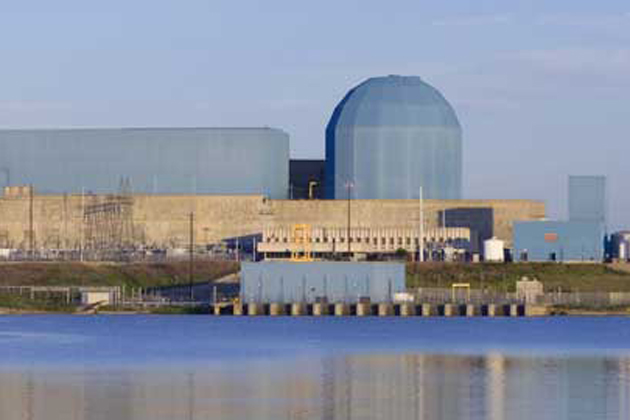
By Illinois Radio Network
SPRINGFIELD – Legislation that would give two Illinois nuclear power plants a secure future has elicited support from those who want to save the thousands of jobs created by the facilities, but also warnings of proposed changes in how residents’ electric bills would be structured.
Justin Wall works in the Quad Cities Nuclear Generating Station. The Rock Island native said the area would be devastated with job losses if lawmakers don’t pass the Next Generation Energy Plan, creating a path to keep their plant and the downstate one in Clinton operating. He says his family, like so many others, would move away.
“I work in the radiation-protection department; it’s a very specialized field,” he said. “If this plant closes, it’s not like I can just go look for another job.”
His wife, Leslie, is a science teacher at Erie High School in the Quad Cities. She said her school and others for miles around would be hobbled by the sudden absence of people and funding they’ve relied on for years.
“The impact would be devastating,” she said. “Jobs would be gone left and right. It’s crazy because all of that would be due to a nuclear power plant closing.”
But Missy Staples, a Glasgow, Kentucky, resident, warned that the structure of peak-hour charges similar to what is being proposed for Illinois have turned into $300 electrical bills, nearly double her old two-month rate.
“It’s not fair to our seniors, people that are disabled,” Staples said. “They are having a hard time paying their electrical bill, and it’s huge. I’m sorry that peak charges have come to Glasgow because it’s been the ruination of our town.”
On Monday, an official with Gov. Bruce Rauner’s office said the proposed rate changes “would dramatically alter the way customers are charged for their energy usage,” calling them “insane rates.” He said the governor worries that “thousands of other high-quality, good-paying manufacturing jobs around the state…could be put at risk by saddling job creators with high energy costs.”
Power company Exelon, which owns the Quad Cities Generating Station and the Clinton Power Station, said in a statement that the Next Generation Energy Plan would provide $1 billion in funding for low-income assistance and reduce the fixed customer charge for energy delivery by 50 percent.






